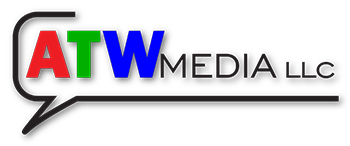Supreme Court weighs fate of TikTok days before ban on app to take effect
Posted/updated on: January 9, 2025 at 3:11 pm
(WASHINGTON) -- The future of TikTok in the U.S. hangs in the balance at the Supreme Court on Friday when the justices hear a last-ditch challenge to a law that would ban the video-sharing app in nine days unless its Chinese-based parent company sells its stake.
The momentous case -- TikTok v. Garland -- pits one of the world's most popular social media platforms against all three branches of the U.S. government, which have aligned over the idea that the app poses a serious risk to national security.
Congress passed the law last April with large bipartisan majorities last year to target foreign adversary-owned platforms that collect troves of data on individual Americans and disseminate propaganda or disinformation. President Joe Biden signed it; lower federal courts have upheld it.
ByteDance, which owns TikTok and is headquartered in China, denies any malign activity in the U.S. and has argued the law violates free speech rights of the 170 million Americans it says use the app each month. It has previously ruled out a sale.
An ABC News/Ipsos poll last spring showed 34% of adults said they used the app, which matches an estimate from the Pew Research Center. Pew also reports that 63% of 13- to 17-year-olds use the platform. Together, these add up to about 103 million users.
The poll showed just 12% of adults reported using TikTok “often,” 10% said they used it “occasionally” and 12% said they use the app “rarely.”
Lower courts have rejected the company's First Amendment challenges, saying the government's justifications are compelling, given evidence of China's extensive cyber espionage efforts and covert content manipulation.
"Unless TikTok executes a qualified divestiture," Judge Douglas Ginsburg wrote for the D.C. Circuit U.S. Court of Appeals, "TikTok's millions of users will need to find an alternative media of communication. That burden is attributable to the [People's Republic of China's] hybrid commercial threat to U.S. national security, not to the U.S. Government."
The Supreme Court is hearing the case on an unusually fast track, just days before a ban on TikTok is set to take effect on Jan. 19. A ruling is likely, though not guaranteed, this month.
If the ban is allowed, it would become unlawful for app stores run by U.S. companies like Apple and Google to offer TikTok downloads or updates with new features or technical fixes. It would not become a crime to use TikTok, and users who have downloaded the app could likely continue to use it for now, technology experts said.
More than a dozen countries, including India, Canada, Australia, and Taiwan, have already blocked or restricted TikTok. In 2023, the U.S. government banned the use of TikTok on any federal devices.
If the ban is put on hold, it would signal that the court has serious concerns about free speech.
The Supreme Court's conservative majority has historically been highly deferential to the government's position on matters of national security, but the justices are also likely to be cautious about a precedent-setting decision that could silence a wildly popular communication tool.
One wild card in the case may be the position of President-elect Donald Trump, who once unequivocally supported banning TikTok in the U.S. but now calls it a "unique medium for freedom of expression."
Trump asked the court in a filing late last month to pause the divestiture deadline in order to give him a chance to reach a "negotiated resolution" to save the app once he takes office on Jan. 20.
In an amicus brief, Trump's nominee for solicitor general, John Sauer, unusually invokes Trump as someone who "alone possesses the consummate dealmaking expertise, the electoral mandate, and the political will to negotiate a resolution to save the platform while addressing the national security concerns expressed by the Government."
Trump does not take a position on the constitutionality of the law and, legal experts said, does not provide a legal basis for the justices blocking or delaying otherwise lawfully enacted legislation unless they find it patently unconstitutional.
Both sides have already spent years trying to reach a deal to institute new privacy protections and independent oversight mechanisms that would assuage concerns of U.S. officials. TikTok had proposed creating a data security subsidiary, based in the U.S., and establishing strict limits on what user data could be accessed by Chinese authorities.
Top U.S. national security agencies ultimately deemed the proposals insufficient.
Copyright © 2025, ABC Audio. All rights reserved.




